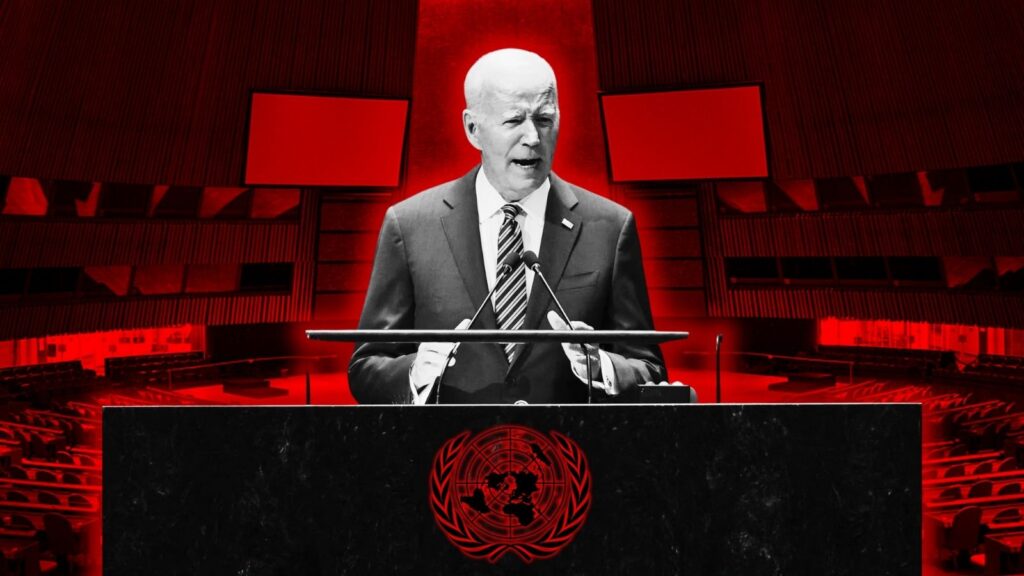
Of all the pressing questions in the realm of global politics and international relations, few are as enigmatic and thought-provoking as the one that has echoed through the annals of history: “Who truly rules the world?” In our quest to decipher the intricate web of power and influence on a global scale, we embark on a journey to unveil the hidden forces, influential figures, and mechanisms that shape the destiny of nations and the course of humanity.
As we embark on this exploration of the forces that shape our world, we find ourselves at the crossroads of global governance, where the United Nations (UN) plays a pivotal role. Born from the ashes of World War II, the UN was initially tasked with a noble mission: to safeguard global peace. Yet, the sands of time have seen its mission evolve, expanding into domains far beyond its original scope, encompassing issues ranging from human rights to economics. This expansion has not only given rise to globalist solutions but has also ignited a fervent struggle for control within the organization. In this article, we venture into the depths of the UN’s power dynamics, the influential figures and nations vying for dominance, and contemplate the potential for a decentralized future, propelled by groundbreaking technologies such as blockchain.
Understanding the UN
The UN comprises six main bodies: the General Assembly, Security Council, Economic and Social Council, Secretariat, International Court of Justice, and Trusteeship Council. Of these, the Security Council stands out, consisting of 15 members, with five of them holding permanent seats – the United States, the United Kingdom, France, China, and Russia. These five members wield significant influence through their veto power over resolutions.
The Allure of the UN
The UN’s open-ended goals provide it with the flexibility to expand its authority into new domains, often claiming that global issues necessitate global solutions. This path has led the UN towards a trajectory of global governance, with ambitions that extend even to the creation of a digital army for social media policing.
The UN’s Puppeteer
The Secretariat, serving as the UN’s administrative arm and de facto global government, is headed by the Secretary-General. This individual is nominated by the Security Council and elected by the General Assembly every five years without term limits. Since the end of the Cold War, Secretary-Generals have tended to align with U.S. interests. China and Russia have attempted to influence member states to gain control, but the United States has often vetoed candidates not aligned with its interests.
Influence Through Partnerships
The UN collaborates with various entities, including corporations like the World Economic Forum and asset managers like BlackRock, to channel capital towards UN goals, particularly through ESG (Environmental, Social, and Governance) initiatives. It also joins forces with tech giants to provide tools for digital IDs, Central Bank Digital Currencies (CBDCs), and the development of smart cities.
Power Dynamics in Developing Nations
Powerful states, particularly through organizations like the International Monetary Fund (IMF), the World Bank, and the imposition of sanctions, exert control over developing countries, stifling their independent development.
The UN’s Struggles
In recent years, tensions between major powers have paralyzed the UN, making coordination increasingly difficult. Faced with this ineffectiveness, the UN has turned to digital surveillance and control measures to maintain its relevance. However, member states are losing faith in the UN’s ability to balance competing national interests, risking its potential fracture if it cannot satisfy China, Russia, and the United States.
The Uncertain Future
Countries cannot technically exit the UN, leaving powerful members locked in a perpetual struggle for control. If voting power shifts, the UN’s ambitious 2030 agenda could vanish overnight. The future of the organization remains shrouded in uncertainty.
A Path Forward
While no institution is free from flaws, it is worth considering a path forward that transcends the cycle of centralized power. Emerging technologies like blockchain offer a glimpse of this future. Blockchain’s decentralized nature fosters trust between parties without the need for dominant intermediaries. It offers transparency, accountability, and integrity while avoiding concentration of control.
Decentralization as a Solution
As blockchain technology matures, it has the potential to facilitate new forms of global cooperation that grow organically from empowered individuals, rather than being dictated from above by institutions like the UN. However, realizing this decentralized future requires collective will and action.
Conclusion
In our quest to understand who truly controls the United Nations, we find a complex web of power dynamics, partnerships, and ambitions. The future of the UN remains uncertain, with its ability to adapt and coordinate under strain. Yet, there is hope in the potential of decentralized technologies like blockchain, which offer an alternative to the centralized control that has defined global institutions for decades. The choice of the future we create ultimately lies in our hands, and it is up to each of us to embrace new models and technologies that transcend the status quo and foster a more equitable and decentralized world.
Thank you for reading “Unveiling the Puppet Masters of Our World: Who Really Pulls the Strings?“.
- Subscribe to our newsletter: ConsensusProtocol.org
- Follow us on Twitter: @ConsensusPro




